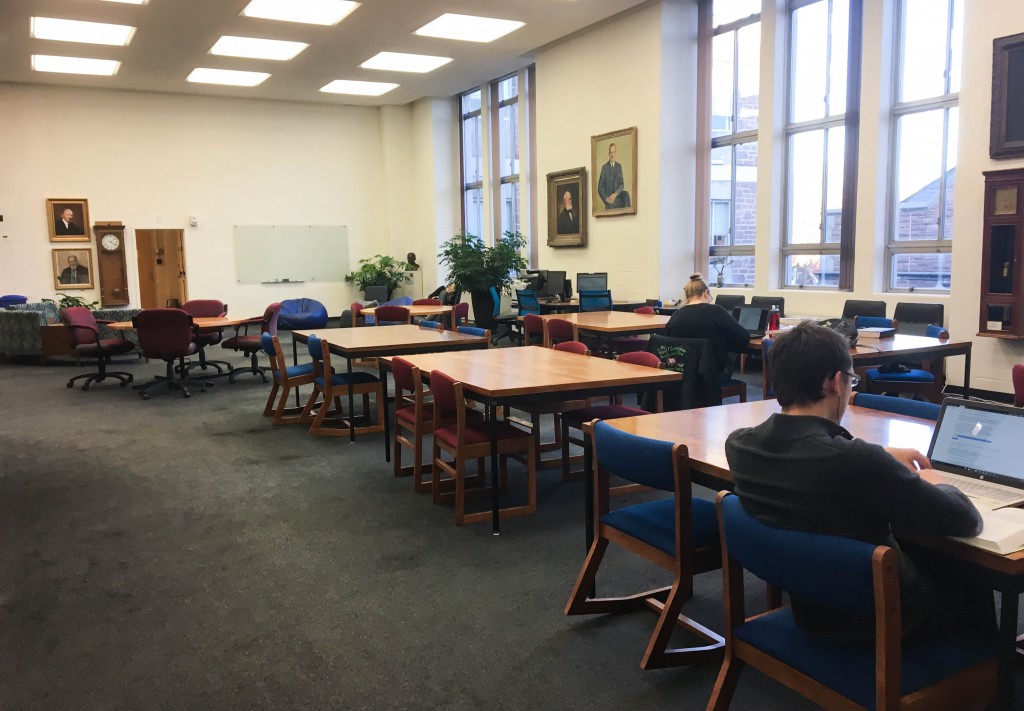Academics | News
Physics department, Cornerstone launch physics PLTL program
Washington University’s physics department and Cornerstone will launch a Peer Led Team Learning program for introductory physics students this semester.
Previously, Cornerstone only offered Peer Led Team Learning (PLTL) for General Chemistry (I and II) and Calculus (I, II and III). The physics department and Cornerstone decided to launch a PLTL program for introductory physics to provide more academic support after receiving feedback from students last semester, according to Society of Physics (SPS) head of public relations, sophomore Jason Tang.
The pilot program, currently named Physics Group Learning (PGL), will only be available to Physics 118 (General Physics II) students this semester.
 Grace Bruton | Student Life
Grace Bruton | Student Life Students study at the Pfeiffer Physics Library, located in Compton Hall. The physics department is working with Cornerstone on PLTL for physics.
“Generally a lot more people take [Physics] 198…so we decided to start with 118 for this semester to test it out,” Tang said.
If the Physics 118 pilot proves successful, the program will expand to include both Physics 197 (Physics I) and 117 (General Physics I) next semester.
“[Cornerstone] has already put in a request for a physics PLTL for next year’s budget, so there should be a lot more groups and it should be open to 197 and 117,” Tang said.
Tang expects that the PGL program will be a great opportunity for physics students.
“I think [PGL] will be pretty successful. I personally will be one of the mentors and I know the other mentors. I really think that they’re qualified to do a good job providing the support students might need,” he said.
Tang also believes the style of the program will be beneficial.
“I know a lot of students learn better from their peers than some professors. If students learn better that way or they know that [Chemistry] or [Calculus] PLTL has been helpful in the past, then I definitely think this would be very helpful,” Tang said.
SPS historian and junior Julia Cohen agrees and believes she would have benefitted from PGL when she took the introductory courses.
“I remember spending a lot of time in Cornerstone and [those] sessions could get really, really crowded. I think that if people who were there every single week had invested that time in small group practice it might have been more effective for a lot of people,” Cohen said.
Both Tang and Cohen hope the new academic support will act as a catalyst in encouraging students to pursue physics.
“I know historically physics has been daunting to a lot of students. It has a reputation of being hard, boring or a mix of both. Hopefully, fingers crossed, this helps a little and makes the subject a little less tedious to study,” Tang said.
“[SPS is] hoping that people that don’t take introductory physics and think, “It’s done, now I can stop worrying about physics forever.” Hopefully, people who take introductory physics and don’t struggle the way some people have in the past will take more physics classes,” Cohen said.
